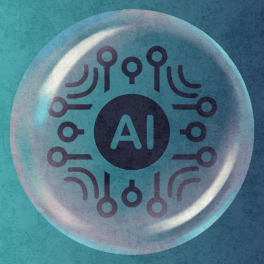
Please note: this article includes sensitive topics that some people might find difficult including FGM, sexual abuse and assault. Please visit our Resources Page or Savera UK for help.
Each year more than 5,000 people are killed globally in the name of ‘honour’ with at least 15 ‘honour’ killings annually in the UK. As we mark the Day of Memory 2023, and the 20th year of death of Shafilea Ahmed, I want to highlight the impact of ‘honour’-based abuse (HBA) and harmful practices on those at risk and survivors.
HBA is defined as a crime spanning from torture, coercive control, forced marriage, female genital mutilation (FGM), virginity testing, child marriage and murder in the name of ‘honour’. Although HBA offences can overlap with intimate partner violence, domestic abuse and sexual violence, HBA is an incredibly complex issue that needs a specific response from the police force, education system, responses and legislation.
Between 2021 and 2022, 2,887 HBA cases were recorded in England and Wales, this is a 6% increase from one-year prior. Of these cases, 77 were recorded as FGM and 141 were cases of forced marriages. 2,669 of these cases were other forms of HBA-related offences. From 2016-2021, after 28 out of 39 police forces responded to a freedom of information request the number of HBA cases rose by 81%. HBA is multifaceted with numerous criminal acts involving multiple perpetrators being common. However, these statistics do not reflect the whole picture due to the under-reporting of the crime. The UK should not be ignoring how pressing HBA is in the UK. The role of family, community and peers in HBA makes it a distinct crime against humanity that sometimes slips through the cracks of justice and visibility.
The 14th of July, every year is a Day of Memory to remember those who have lost their lives in the name of ‘honour’. The reason the 14th of July is the date of choice is as it is teenager Shafilea Ahmed’s birthday, in 2003 she was murdered by her parents due to rejecting her parents’ plans for forcing her to marry and becoming ‘too Westernised’ according to her family and community.
Savera UK is a charity that safeguards and advocates on behalf of those at risk of HBA and harmful practices. One example of what a victim may endure and the impact of Savera UK’s work is Melika’s story; Melika is a survivor of forced marriage and FGM. Melika was forced into a marriage with an older man that she had never met, and was not given a choice as to whether she wanted to marry him. Soon after their wedding, Melika fell pregnant, leading to a ripple of abuse, from confiscating her phone, demolishing her belongings, and not allowing Melika to go to the shops or see friends. Her husband began controlling her time and life which was sadly coupled with physical abuse. Melika was brave enough to open up to her family about the abuse where she was met with responses like “over the years it gets better”, where her family desensitised the trauma she went through and regarded the abuse as part of marriage. However this was wrong, Melika continued to experience physical, sexual, emotional and financial abuse. Melika got accused, without reason, of adultery and endured an interrogation which they believed was a form of traditional practice. She was also separated from her children and was not given food or drink until she had proven innocent of adultery.
Luckily, Melika had the bravery and courage to flee and reported her abuse, trauma and dehumanising experience to the police. Melika was given Savera UK’s helpline. Savera UK created a protection plan for her and her children to supply them with safety. Savera UK referred Melika to legal services to enhance her protection, and to medical and emotional services for FGM, and counselling to propel the start of a new chapter of her life.
Melika is just one example of a victim and survivor of multiple HBA violations. Her story encapsulates the dangers of the crime and how the work of Savera UK is vital to the lives of many survivors of HBA. HBA can happen to anyone regardless of sex, gender, ethnicity, culture, sexuality or age. It is a crime that does not discriminate.
To actively spread awareness we need you. Please share this article, follow @Saverauk and @saveraukyouth on Instagram and share their posts, educate yourself by reading Savera UK’s fact sheets on their Learning Hub or even sign up for Savera UK’s newsletter. Your help can truly make a difference, so please do what you can to raise awareness of ‘honour’-based abuse.
More for you
Support Young Creators Like This One!
VoiceBox is a platform built to help young creators thrive. We believe that sharing thoughtful, high-quality content deserves pay even if your audience isn’t 100,000 strong.
But here's the thing: while you enjoy free content, our young contributors from all over the world are fairly compensated for their work. To keep this up, we need your help.
Will you join our community of supporters?
Your donation, no matter the size, makes a real difference. It allows us to:
- Compensate young creators for their work
- Maintain a safe, ad-free environment
- Continue providing high-quality, free content, including research reports and insights into youth issues
- Highlight youth voices and unique perspectives from cultures around the world
Your generosity fuels our mission! By supporting VoiceBox, you are directly supporting young people and showing that you value what they have to say.





